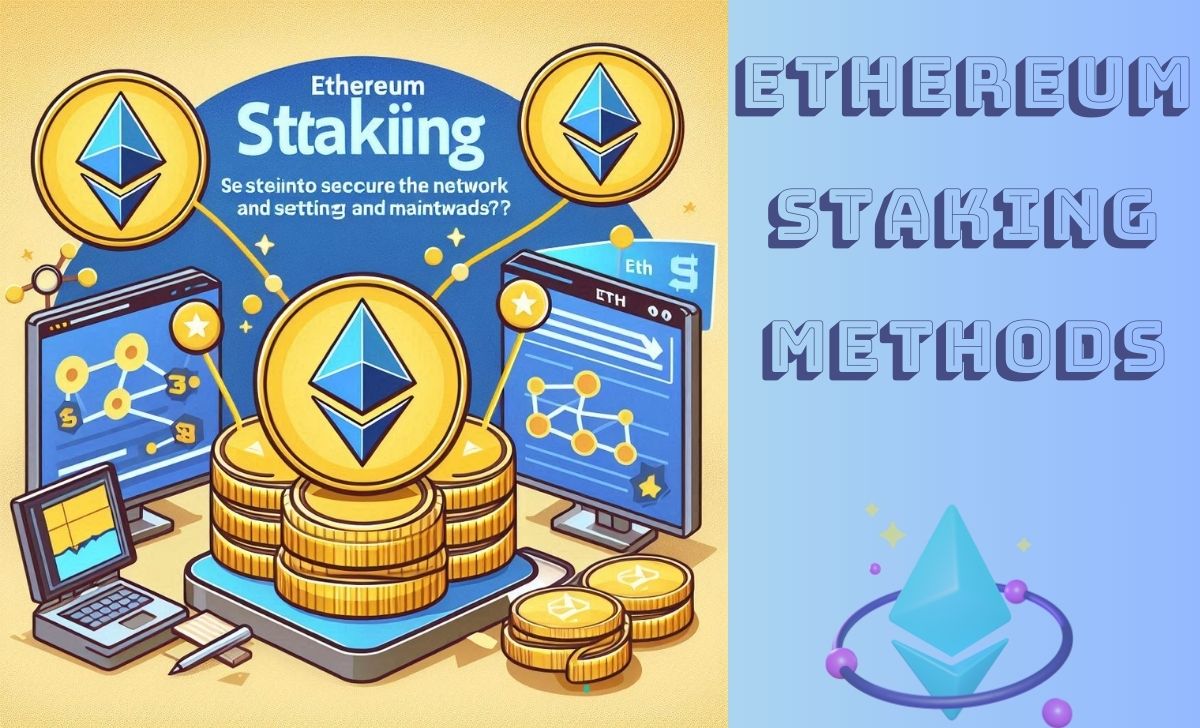Ethereum staking is one of the effective ways for you to not only participate in the Ethereum ecosystem but also earn profits from your digital assets. By participating in Ethereum staking, users will lock a certain amount of ETH to have the opportunity to become a validator and receive rewards from the Ethereum network.
In this article, let’s explore Ethereum staking with AZCoin, how it works, the benefits and risks associated with ETH staking.
What is Ethereum staking?

Ethereum staking refers to the process of participating in validating transactions on the Ethereum network, especially after Ethereum transitioned to a Proof-of-Stake consensus mechanism in 2022.
Before starting staking, users need to lock up some ETH to have the opportunity to become a validator, an important part of the PoS system. Validators will perform transaction validation, create new blocks and monitor malicious activities on the Ethereum network.
How Ethereum Staking works

To participate in Ethereum staking, you need to follow some basic steps:
- Stake 32 ETH: To become a validator, you need to stake a minimum of 32 ETH. This is the amount of ETH required to activate the right to participate in validating and creating new blocks on the chain.
- Setting up a validator: After staking, you need to set up and maintain an Ethereum node. This node will continuously connect to the network to validate transactions and create new blocks.
- Using validator keys: Validator keys consist of a pair of public and private keys. The public key is used to identify validators and collect rewards, while the private key is used to sign actions on the chain.
- Operations by epochs: Ethereum divides time into epochs, each consisting of many time slots. Transaction blocks are validated and added to the blockchain during these time slots, with the participation of committee validators.
Ethereum Staking methods

There are three main methods of Ethereum staking that are popular today:
Solo Staking
This is the most secure method, but requires you to have at least 32 ETH and the hardware and software to maintain an Ethereum node that is constantly running. Solo staking allows you to directly receive rewards from the network without going through an intermediary.
Staking-as-a-Service
Staking-as-a-Service (SaaS) allows you to delegate a third party to run a node on your behalf. You still need to provide 32 ETH to activate the validator, but the service provider will manage and maintain the node for you. This is a good option for those who don’t have the hardware or skills required to perform solo staking. However, you need to trust that the service provider will operate honestly and protect your assets.
Pooled staking
Pooled staking allows multiple users to combine ETH to form a validator node with a minimum of 32 ETH. You can participate with a smaller amount of ETH and receive rewards proportional to your contribution. This is a more cost-effective and accessible method, but the rewards are shared among the pool members. Some staking pools provide tokens representing the staked ETH, which you can use in other DeFi applications.
Benefits of Ethereum staking

Ethereum staking offers many attractive benefits:
- Earn passive income: By participating in staking, you can receive periodic rewards, allowing you to profit from your locked ETH without having to take any additional actions.
- Improve network security: Staking helps strengthen the security of the Ethereum network, as validators have an incentive to act honestly and protect the network.
- Reduce barriers to entry: With methods like staking pools, you can start staking with a smaller amount of ETH, lowering the barrier to entry compared to solo staking, especially with platforms like StakeStone that make the process even more accessible.
Risks of participating in Ethereum Staking

Despite the many benefits, Ethereum staking is not without risks:
- Price risk: The price of ETH may fall, affecting the total value of your investment.
- Technical risk: If your validator or equipment fails, you may face financial penalties.
- Liquidity risk: Locked ETH will be inaccessible during the staking period, causing difficulties if you need money urgently.
Factors affecting Ethereum staking
Ethereum staking performance can be affected by a variety of factors, including:
- Amount of ETH staked: As the amount of ETH staked increases, staking rewards may decrease as rewards are shared among more people.
- Network health: The performance of the Ethereum network, including transaction processing speed and security, can affect staking rewards.
- Market volatility: The value of ETH on the market can fluctuate widely, affecting the value of staking rewards.
- Geopolitical tensions: Global events such as geopolitical tensions, can impact the cryptocurrency market and therefore affect staking performance.
- Operating costs: The costs associated with maintaining and operating staking nodes, including hardware and electricity costs, can also affect overall profitability.
For more insights on managing staking and the best platforms for trading and staking cryptocurrencies, check out AZcoin – best crypto exchange 2024.
Conclusion
Above is an overview of Ethereum staking. Ethereum staking is not only a way to earn profits from your ETH assets but also contributes to the security and maintenance of the Ethereum network. If you want to learn more about how to participate in Ethereum staking and choose the method that is right for you, follow the next articles of AZcoin to update the latest and more detailed information.

I’m Jessi Lee, currently living in Singapore. I am currently working as a trader for AZCoin company, with 5 years of experience in the cryptocurrency market, I hope to bring you useful information and knowledge about virtual currency investment.
Email: [email protected]











